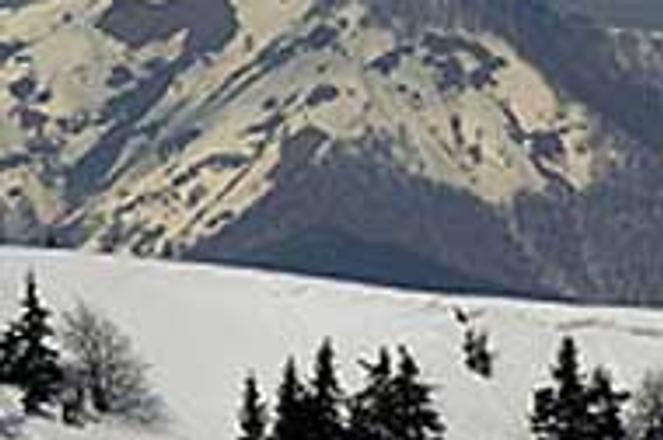Approximately 38% of visitors to Slovakia said that the country had exceeded their expectations.photo: TASR
Melding a friendly culture, relatively inexpensive services and some of the most spectacular natural scenery and historical sites to be found throughout Europe, Slovakia seemingly has all of what makes for a tourist hotspot.
Indeed, since the fall of communism in Slovakia in 1989, tourism agencies have sprouted up throughout the country to spread the good word on Slovakia, with the number now totalling more than 50 nation-wide. But mention Slovakia to people outside Slovak borders - most notably in western countries - and the most likely response is a look of blank ignorance.
For those Slovak tourism agencies located abroad, attracting attention to a country that people know little or nothing about remains an arduous task, a task made none the easier by lagging government support.
Michal Ševčík, the director of the tourism section at the Ministry of Economy, said that tourism in Slovakia generated about 2.5% of annual GDP, and that it was one of the most significant factors influencing the country's foreign trade balance. Directly and indirectly, Slovakia's tourism industry creates approximately 100,000 jobs. But unfortunately, Ševčík conceded, tourism in general is not appreciated by the state as much as he believed it should be, especially in terms of creating awareness abroad.
"From my perspective, I believe that good subsidies abroad, especially among Slovakia's close neighbours, represents a good investment in attracting foreign money into the Slovak Republic," he said. "But the Slovak agency for tourism has no subsidies in any country thus far."
Susan Dančka, director of the London-based Czech and Slovak Tourist Centre - the official representative for the Slovak Republic in Great Britain - said her company received some promotional material from the Slovak government, and agreed that additional funding would allow her to give much-needed attention to putting Slovakia on the map.
Awareness, she explained, was the first step in bringing in more tourism dollars into Slovakia. "If you want to get people to Slovakia, they have to know that this country exists," she said. "In my opinion, a tourism board outside Slovakia is the most important thing which the country can have. It not only provides tourist information, but makes it possible to do the advertising and promotion for Slovakia abroad."
Dančka was also less than enthusiastic about the outlook for the upcoming tourist season this summer. "We do see an increasing number of people going to Slovakia. I can't say that it is in the thousands, but more and more individuals are going there. But it's not like a total tourist influx. It isn't like Slovakia is the place to go to this summer. Definitely not."
Turkey, Dančka said, provided the kind of example Slovakia should follow. This country was relatively unknown in Britain until recently, but has since reaped the benefits of an aggressive promotional campaign by the Turkish government, which blanketed billboards and local newspapers and magazines throughout Great Britain with pro-tourism advertisements.
Ivica Kianičková, the director of the Bratislava branch of the Ohio-based Adventure International Travel (AIT), said Slovakia should take note of the success of tourism campaigns in Austria and Italy, where state-sponsored local tourism boards made gathering information on the country a snap. Kianičková believed Slovakia could vastly improve its popularity by establishing a network of information centres abroad to promote the country.
Most of the interest in AIT is generated by its website, with added support from advertising in a Slovak news publication in Ohio, an AIT travellers' survey revealed. Exactly one third of the total number of visitors to AIT learned of the agency through word of mouth, principally from relatives and friends. Almost the same percentage came through US-based travel agencies.
Low foreign awareness of Slovakia is a problem, Kianičková added, but one that could be solved easily if a bit more effort was put into promotion abroad.
"Not many people know about this county," she said. "Many who come here do so because they hear only that it is an interesting county, and it isn't until they leave that they realise how special it is."
Kianičková's sentiments were echoed by figures showing that 38% of visitors surveyed said Slovakia was more than they had expected.
Frank Hoekstra, owner of the Up Hill Vakantiehuizen travel agency in Holland, specialises in travel packages to the Czech Republic, Poland and Hungary. He said his seven-year old business annually attracts about 2,000 individuals to Slovakia, but that recently, the country had been playing second fiddle to the Czech Republic.
"Business is not going very well in Slovakia. For the Czech Republic, our business is rising and rising, but in the Slovak Republic it's the opposite," he said.
The rising cost of accommodation, with the chalets that Hoekstra provides becoming more and more expensive, is pricing people out of the Slovak market, he explained, while the Czech Republic has not seen the same rise.


